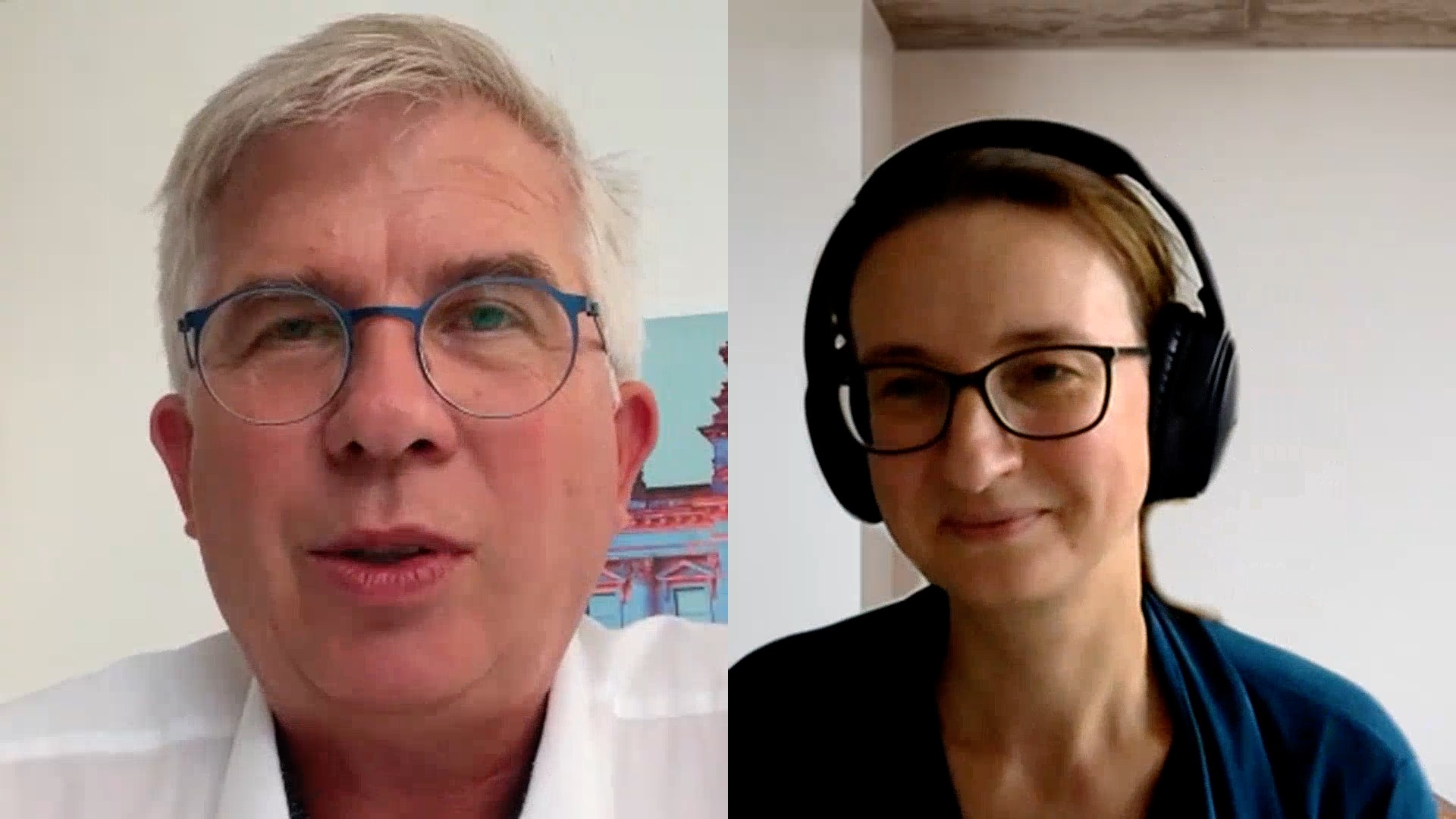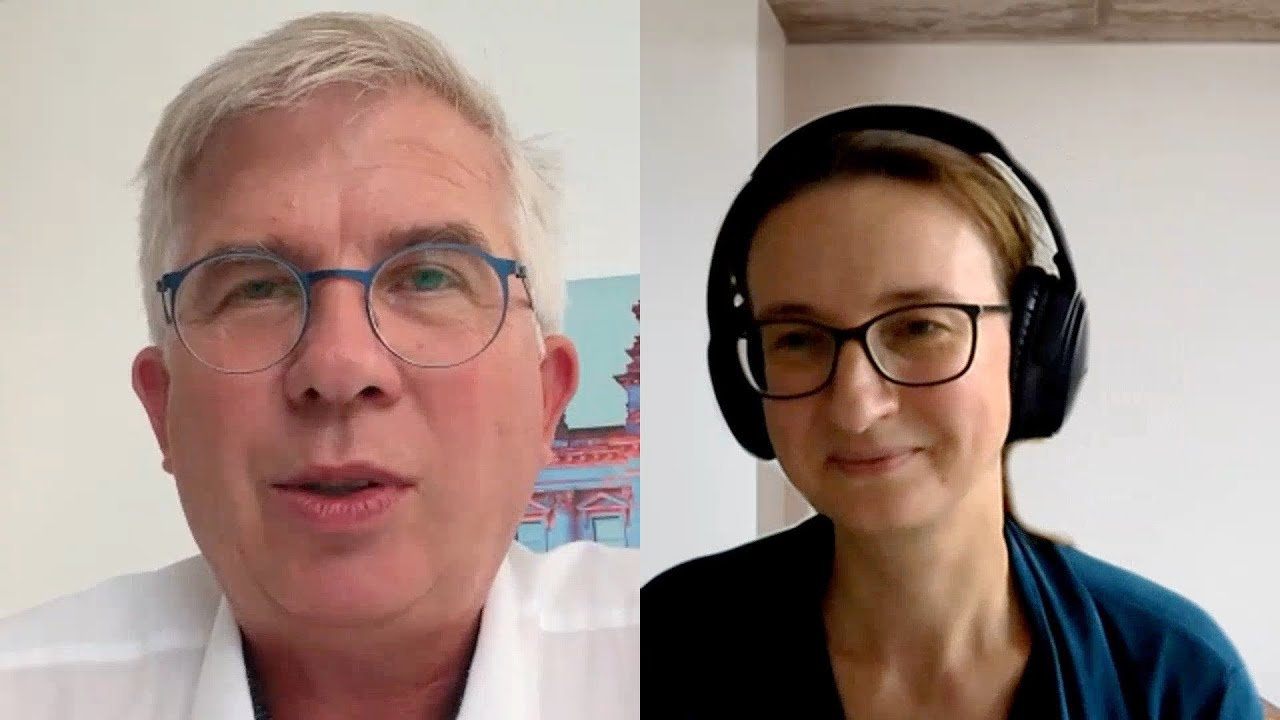A glance into the Sub-committee on Global Health: An Interview with Prof. Andrew Ullmann

As part of our new interview series “The Hub in conversation with...”, members of the parliament and representatives of ministries share insights into their work. In this issue, our managing director Kristina Knispel interviewed the chairman of the new sub-committee on Global Health, Prof. Andrew Ullmann.
Professor Ullmann, you are the chair of the new sub-committee on global health in the Bundestag, which was established in April 2022. With 17 new members, the sub-committee is larger than any previous ones - how did that happen?
Andrew Ullmann: Actually, the idea was to form a committee rather than a sub-committee. Instead, we have now expanded the sub-committee with direct links to the Committee on Economic Cooperation and the Committee on Health, to ensure global health is a joint, interdisciplinary effort and viewed holistically! I am proud that the sub-committee has expanded with the start of the new parliamentary term. The status as a committee is less important, because ultimately what matters is the content that we bring in. We work across parties to bring the democratic parties together.
What is the main focus of the sub-committee?
Andrew Ullmann: We have a few topics that we would like to cover, but the priorities are relatively clear: pandemic prevention and response. We must learn from the Covid crisis, as well as the mistakes made on a global scale.
Global warming should not be ignored either. Within the healthcare sector in particular, global warming poses a particular challenge, both for healthcare systems and for people. Digitisation is another topic. We need to be able to collect and evaluate data. Finally, global health governance and funding. Unfortunately, solutions are not possible without appropriate financing.
What is important to me as a doctor: health promotion - not just treating illnesses, but also the transfer of health skills – to ensure equal rights for everybody in this world. It's a tough job and it takes time, but without the sub- committee it would take even longer.
Before the parliamentary summer recess, which question caused the most heated debate in the sub-committee?
Andrew Ullmann: The discussion about patents and intellectual property became a bit emotional. Across parties, there are diametrically opposed understandings as to what is meant by intellectual property and how it should be dealt with.
But in fact, I think the solution is not to question intellectual property, but to ask, “How can we ensure that the global population benefits from medical innovations?”.
As the sub-committee chair, what would you like to achieve by the end of the legislative period?
Andrew Ullmann: I hope that global health will become reflected in everyday political life. At first, we were a couple, I would almost say 'nerds', who talked about global health, and there was also some head-scratching in the parties, about what global health is. This awareness has changed dramatically over the past four years. Now, global health has gained an important role.
For us as a sub-committee, the global health strategy of the federal government must not disappear in a drawer but must be lived. We would like to advance the development of a healthcare architecture and the healthcare financing and strengthen the reforms of the WHO. Not to be forgotten: the sub-committee members of the coalition government and the CDU/CSU together pushed ahead to ensure Taiwan's involvement in the World Health Assembly and passed a corresponding motion in the first half of 2022.
We have lots of different sectors within national health systems and the same is true for global health. We must see the connections: the climate crisis, food security, which must be guaranteed right now as the Russian-Ukraine war is ongoing, and the effects on health through One Health - zoonoses are an important point. But also neglected tropical diseases – i.e., diseases associated with poverty, which have a very high disease burden. I am hopeful that the new mRNA vaccines can benefit these areas over the next five to ten years.
However, Germany cannot do it alone. It is vital that politics returns to where it was when it comes to global health and economic cooperation: multilateralism. Without multilateralism, all defined global health goals will not be achieved. As Germany, one of the largest countries in the EU, we must bring forward these tasks with our partners, some of which are assigned to the G7 and G20.
You just spoke of tough jobs What is your way forward? How exactly should results be implemented?
Andrew Ullmann: I think it is important for us, as the legislature, to actively work with the executive and to stay engaged with other stakeholders. The Global Health Hub Germany is a platform and a bridge builder. And we, as a sub-committee, can also be bridge builders from the political side. We don't necessarily need a global health ambassador like there is in other countries, but it would be important to have a global health coordinator.
What obstacles do you see in the implementation?
Andrew Ullmann: One hurdle we are experiencing are multiple, overlapping crises. Right now, we have the Covid crisis, we have a humanitarian crisis within our European neighbor, Ukraine, due to the aggressor Russia; we have an energy crisis; we have an economic war in our own sphere. Global thoughts take a back seat and people tend to think nationally. This must not happen; we must be careful and politically counteract this! Even here, it is often about money. We have a tight budget because a lot has been invested in Covid-19 recovery. But we must now recognize that investing in global health is important for our future - we should not forget that.
So, budget and awareness remain critical factors. You also recently called for better data on Twitter – what measures do you suggest for improvement?
Andrew Ullmann: Especially if you look at Anglo-Saxon countries - the UK, the USA or Canada - you can see that they have very good data at the national level and the CDC (Centers for Disease Control and Prevention) has international data available immediately when outbreaks occur. The ECDC (European Center for Disease Prevention and Control) still needs to develop into this direction - but this development is precisely what is essential to ensure resilience against future pandemics. Essentially, these developments are about making the information that we receive locally, also available globally for analysis.
Let's not forget the unclear information policy from China when Covid-19 started. This must not be repeated. We must bring the global public health structure into a better digital and multilateral future. We have the tools, only the implementation is missing.
In the sub-committee, you deal with the International Pandemic Treaty, among other things. The Global Health Hub Germany recently asked members about the necessary content of the future pandemic contract. Are such surveys helpful to you personally and to the sub-committee?
Andrew Ullmann: I think precisely this information is always needed as it can aid in fine-tuning our political work.
